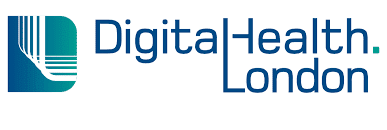Remote but even more engaged: How to involve patients in your research in the age of digital-first

By
Patient input is vital to medical research. Scientists need to hear about patient experiences to be sure that they are researching the most pressing questions. In a clinical trial the potential benefit of a new drug needs to be clearly explained to convince an individual to join the trial. But in data research the patients involved are not required to actively take a drug, so can the research go ahead without specific individual consent?
As a research data scientist for Barts Health NHS Trust, my research uses Artificial Intelligence to analyse records from patients with diabetes to find out why some people develop foot problems. To get permission for this specific project we were required by the research authorities to undertake substantial patient engagement and involvement. This meant that I needed to convince lay-patient representatives I had never met, but who were well known to the hospital and health professionals, that this research would have a real impact on them as patients. One approach I took was to explain that the data needed had been collected during routine care and it was easy to re-use this from the hospital electronic health record. However one of the challenges was explaining that we wanted to do the analysis without individual consent from the 60 thousand patients involved. The main reason for this is that it is impractical to obtain permission in retrospect for such a large number of patients. The way we dealt with this challenge was to host an event for local diabetes patients to talk specifically about this.
A digital lay-panel discussion
Although I often speak about research projects at scientific conferences, I was nervous joining the lay panel meeting. I needed to convince these patient representatives that we should be trusted to access their (and others’) medical notes and that the research proposal was important enough to justify this. We also had to deal with the additional barrier of not being able to meet in person and make extra efforts to form the connections essential for trust, especially as there is currently a lot of interest in the broad use and access to patient data.
In fact, an online event ensured that we could demo the tool used to process patient data, showing exactly what the output was and why their records are needed for the project. This was actually easier on Teams where each panel member has their own screen and can share their comments either as text or over the microphone. The lay panel event had around 35 attendees and 12 completed a survey at the end. I’m so grateful for those giving up their time to help us think through the project.
The group were incredibly welcoming to us; the range of experiences from these patients – from young, recently diagnosed adults to older patients with decades-long appointments and check-up histories. All patients are experts in managing their diabetes, and there was also plenty of technical expertise – you never know who is in the crowd and how ‘lay’ the panel is in your field!
It was heartening to receive positive feedback and know that the audience really understood what the project was trying to achieve. Respondents were confident that their data should be accessed by myself for this reason and trusted that we would take appropriate steps to protect it. Panel members told us they were surprised about how strict project boundaries are, for example, we cannot follow a patient’s data if they are treated by another hospital trust, because we had not explicitly said that we would do this. All of the panel were keen to stay involved in the project and wanted to be kept as up-to-date as it progresses.
Being part of the Digital Pioneer Fellowship has helped me to talk about research projects to people from different backgrounds especially when hearing about the approaches being taken to engage with users in other Fellows’ projects. A remaining question for our research team is how to improve reach to more patients within our local community, and I know that my peers on the programme will have some tips for this too.
Citizen patient demands
Following the event, we wrote a report and shared this with the regulation authority. We heard clear demands from the lay panel for conducting our research:
- Keep data safe
- Only use data for this project
- Make sure the appropriate authorities know about and are happy with the project
- Ensure the research is impactful and find ways around barriers that limit the potential, if necessary
- And finally: use our patient experiences to help and guide the research
Although we started this as a required activity for the research authority, the group were open to sharing their stories and opinions so we found new motivation from the engaged lay panel. This is important to see potential for the future. Our lay-panel session is just one example of a series of events we are planning to engage with the local community on this research project. Such events are required more and more for research funding or publication, as patient involvement moves into this digital-first era.
DigitalHealth.London is delighted to publish blogs by the NHS staff and digital health companies we support through our programmes, as well as sector thought-leaders, experts and academics. Any opinions expressed within blogs published on our website are those of the author and not necessarily held by DigitalHealth.London. For more information, or if you would like to write a blog for our website, please email info@digitalHealth.london.

 Accessibility options
Accessibility options Translate the page
Translate the page